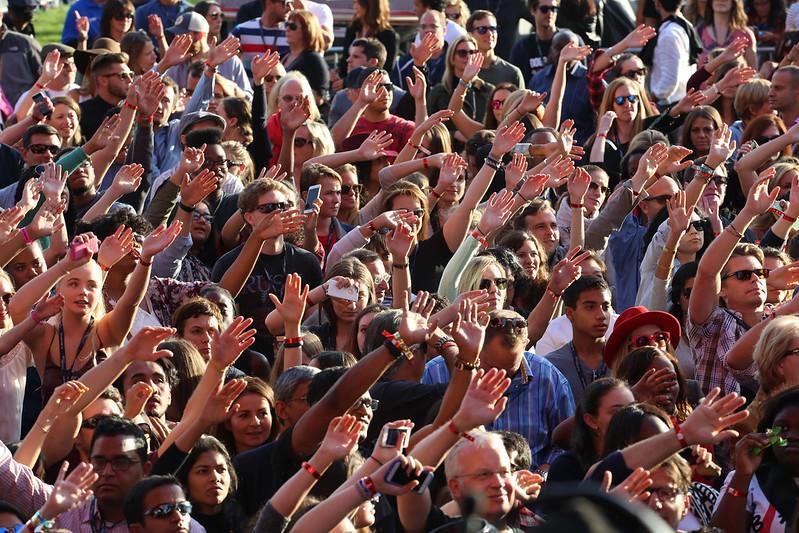
Have you ever walked, mortified, into a crowded mall the week of Christmas, met by thousands of crazed, confused and rushed shoppers? Have you ever entered an amusement park excitedly, only to see throngs of people shoulder to shoulder, waiting to hop on the park’s largest roller coaster, and you suddenly feel sick to your stomach?
Have you ever decided to stay home from a major event, with a gnawing at the pit of your stomach, because you knew there would be “way too many people there”?
Some people prefer smaller gatherings, just because they feel most at home in intimate settings. Others feel that large crowds just aren’t for them, but if they find themselves at a concert or an enormous grocery store at peak shopping time, they may be irritable but are still okay.
For others, however, it’s much more serious.
If you have a debilitating fear of crowds, and find yourself thinking irrationally and behaving unreasonably because of your fear of the danger of being in a crowd, you may have something called enochlophobia.
Enochlophia can be so severe that individuals who suffer with it can exhibit behavioral, emotional and physical symptoms. They may feel so powerless to stop the fear that they do everything they can not to leave their safe spaces, even to go to family functions or to work.
What are the physical symptoms of enochlophia?
Like other anxiety disorders, some of the symptoms of this phobia can include:
- Shaking
- Shortness of breath
- Blacking out
- Heart palpitations
- Muscle tension
- Nausea
- Stomach pain
- Sweating
- Headache
- Rapid heart rate
- Panic attacks
A person with this phobia may also feel “foggy,” or confused; they may become angry, desperate or irritable. They may cry and do all they can to escape. For the most part, however, those with enochlophobia will do what they can to avoid the situation altogether.
Although enochlophobia is not recognized in the Diagnostic and Statistical Manual of Mental Disorders (DSM-5), it is respected as being related to other diagnoses. If you have not been diagnosed with another disorder, you may be considered as having enochlophobia if your fear of crowds has been persistent for at least six months.
What is the cause?
There is no single, known cause of enochlophobia. It could be that you experienced trauma as a child (perhaps you got lost in a crowd and was separated from your parents). You may have had overprotective caregivers as a child. You may have, as an adult, been trapped or injured in a crowd. You may tend to think negatively in general.
What’s the treatment?
Typically, cognitive behavioral therapy and medication are prescribed for enochlophobia. Cognitive behavioral therapy helps you identify unhelpful thinking patterns, as well as how to improve the way you think. Medication may be prescribed if your enochlophobia is debilitating and impacting your day-to-day life.